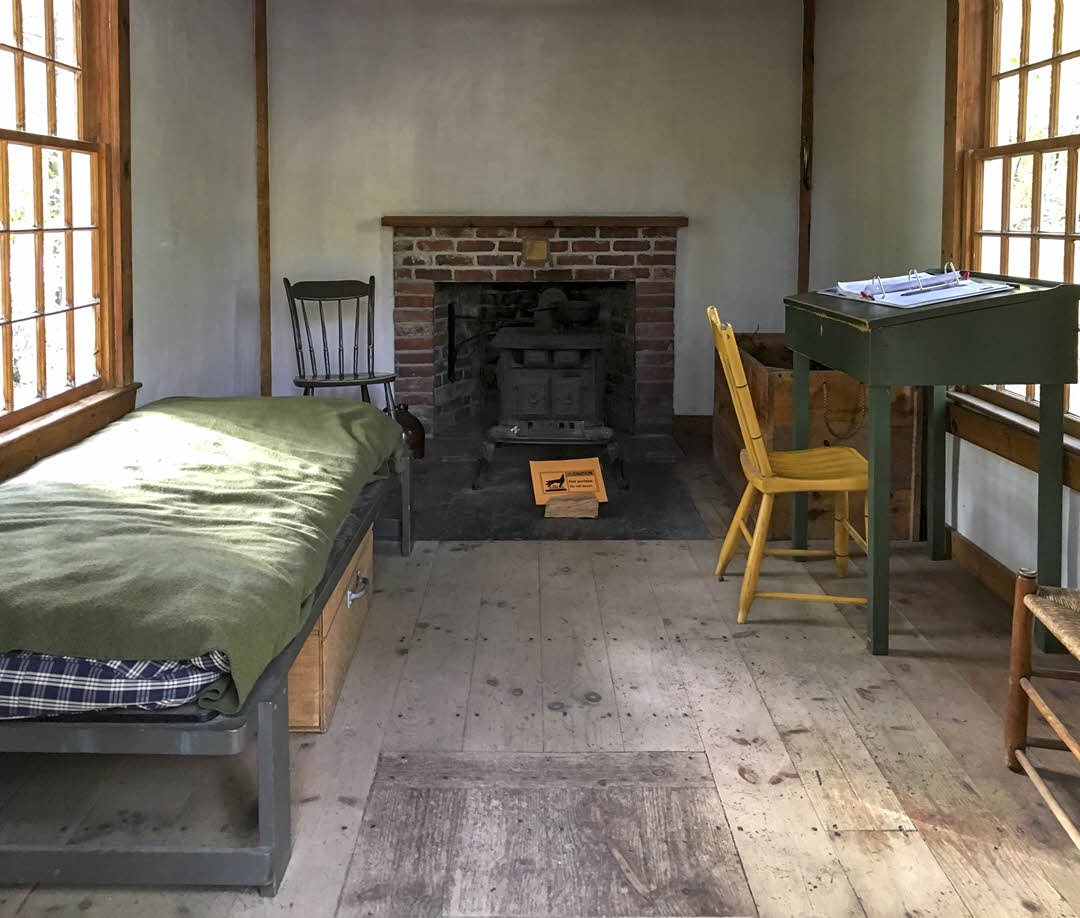
Walden by Henry David Thoreau
Walden is Henry David Thoreau’s reflection on simple living, self-reliance, and personal independence, based on his two-year experiment living in a small cabin near Walden Pond in Massachusetts.
What Would Henry David Thoreau Think of the Modern Tiny Home Movement?
If Henry David Thoreau were alive today, he would likely be one of the most enthusiastic supporters of the modern tiny home movement. Best known for his book Walden, Thoreau was a philosopher, naturalist, and transcendentalist who believed deeply in simplicity, self-reliance, and living deliberately. His experiment of living alone in a small cabin by Walden Pond in the mid-1800s reflects many of the core values embraced by today’s tiny home dwellers.
Thoreau built his 10-by-15-foot cabin with his hands using salvaged materials for about $28. In doing so, he rejected his time’s material excess and societal expectations, choosing instead a life centered around nature, introspection, and independence. I wonder what he would think about our materialistic ways of today?
The fact that he chose to live in a simplistic, minimalistic manner makes him a spiritual predecessor to modern tiny house advocates. Many of them are drawn to minimalist living as a rejection of consumer culture and housing debt.
At the heart of the tiny home movement is the belief that less is more—less space, less stuff, less expense—but more freedom, more intentionality, and more connection to life. These ideas resonate strongly with Thoreau’s own writings. In Walden, he famously wrote, “Our life is frittered away by detail… Simplify, simplify.” By their very design, tiny homes force residents to pare down possessions, reduce distractions, and focus on what truly matters. Thoreau would have admired how these modern dwellings encourage a more mindful, self-aware way of living.
Thoreau also believed in personal responsibility and a direct relationship with one’s environment. He would likely applaud the use of solar panels, composting toilets, and off-grid water systems in many tiny homes today. These technologies reflect an effort to live harmoniously with nature, a theme central to Thoreau’s philosophy. He would have appreciated how tiny homes not only lessen individuals’ ecological footprint but also foster a deeper appreciation for the natural world.
Moreover, the mobility of many tiny homes might have fascinated Thoreau. While firmly rooted in Concord, Massachusetts, he had a strong sense of wanderlust and an appreciation for exploration. The ability to tow one’s home and live in different natural settings could be seen as a modern expansion of his ideals, bringing solitude and natural beauty to wherever one desires, without sacrificing the comfort of shelter.
However, Thoreau may warn against romanticizing tiny homes purely for aesthetic or trend-following reasons. He was critical of any lifestyle choice not rooted in deep purpose or philosophical clarity. If tiny living becomes another marketable fad—complete with designer decor and Instagram fame—Thoreau would likely caution against missing the point. To him, the value of a small home lay in its ability to foster reflection, growth, and meaningful living, not just a cool, curated image.
In conclusion, Henry David Thoreau would likely view the modern tiny home as a worthy evolution of the values he championed: simplicity, independence, sustainability, and thoughtful living.
Though centuries apart, his ideals remain remarkably relevant today. In many ways, Walden brings the tiny home movement into the present day. This is an enduring testament to the idea that we need very little to live well.

Henry David Thoreau’s One Room Home on Walden Pond – a replica.
